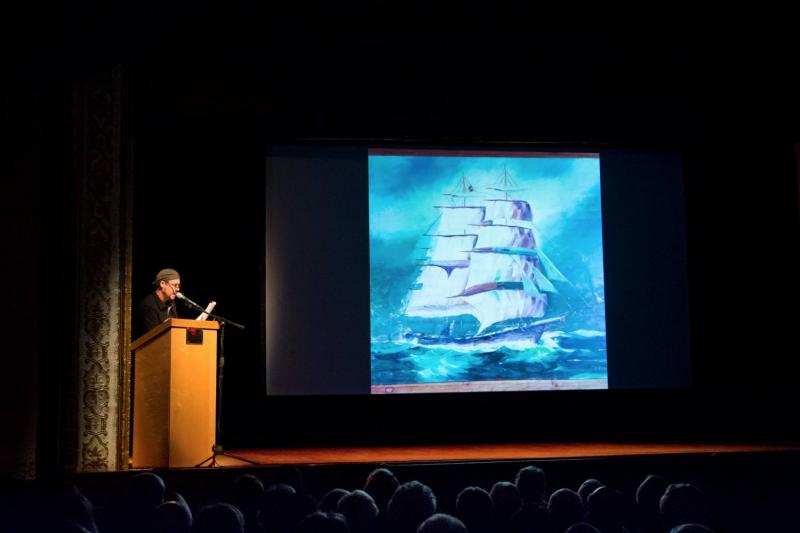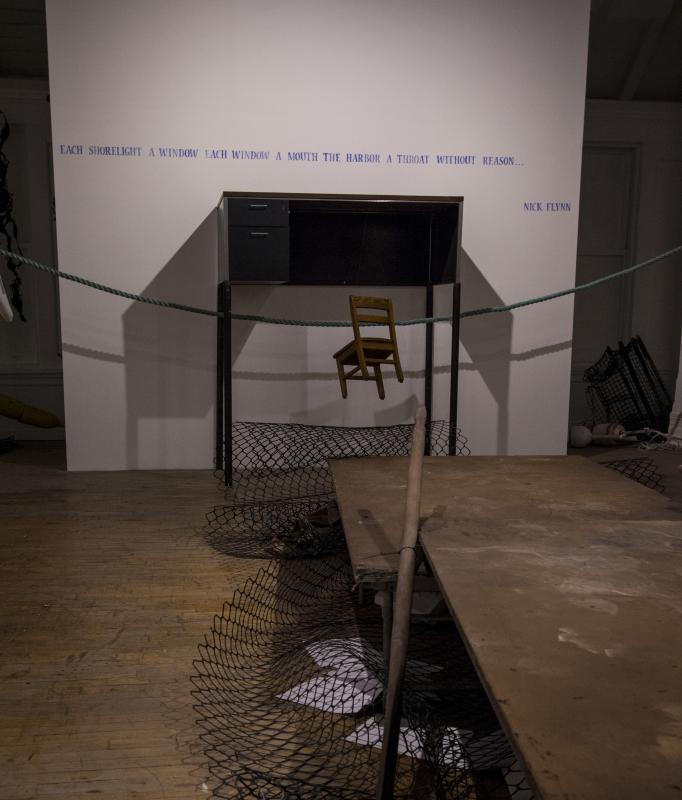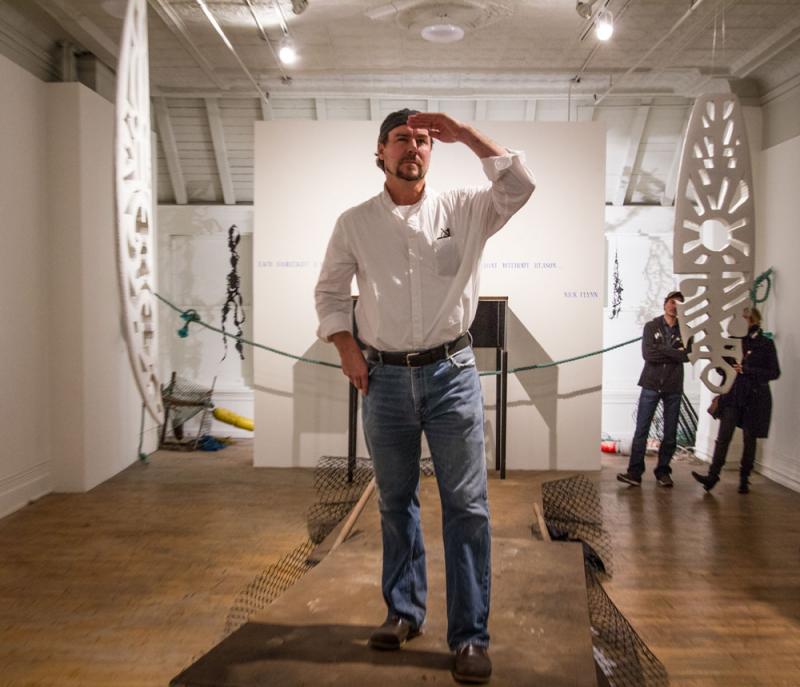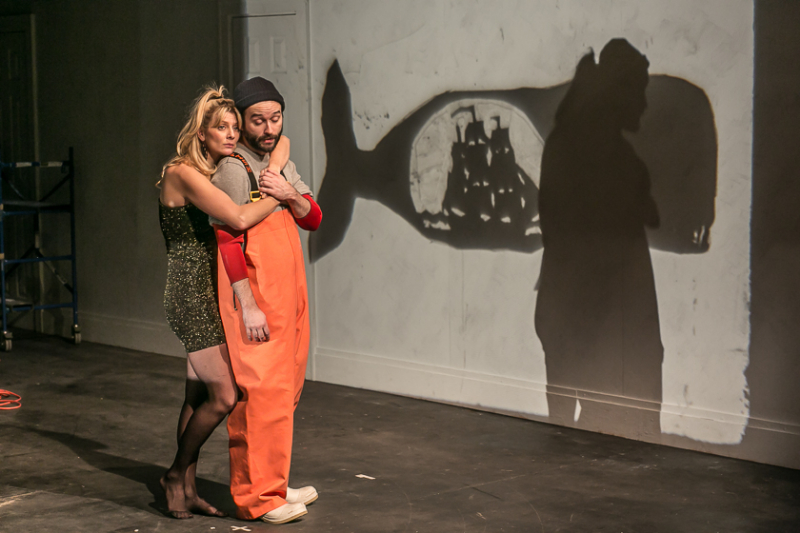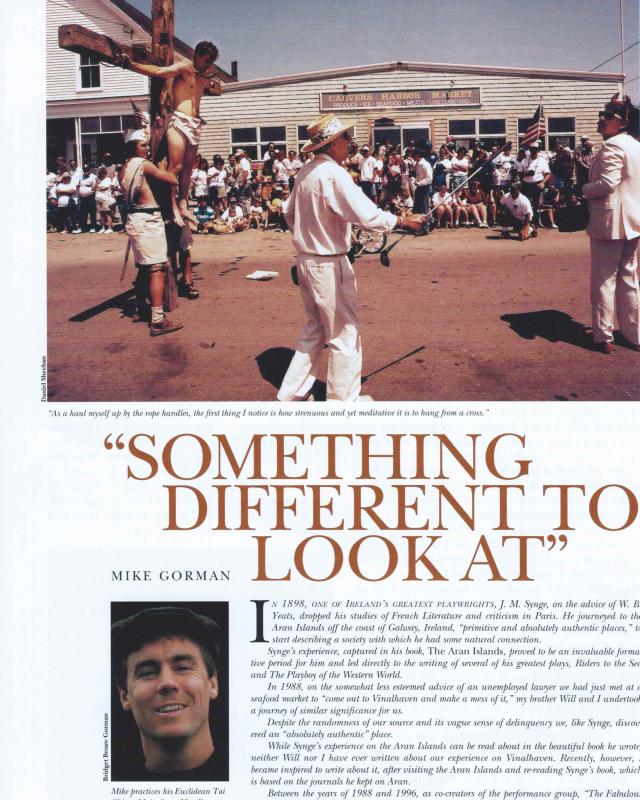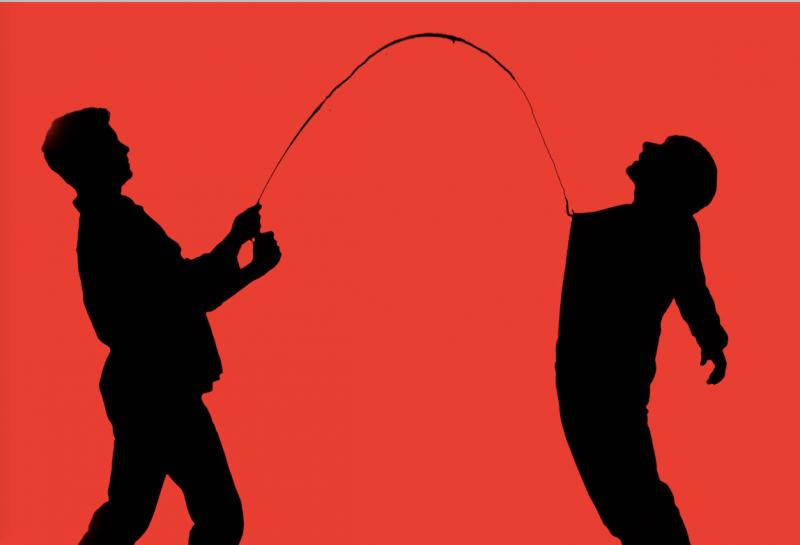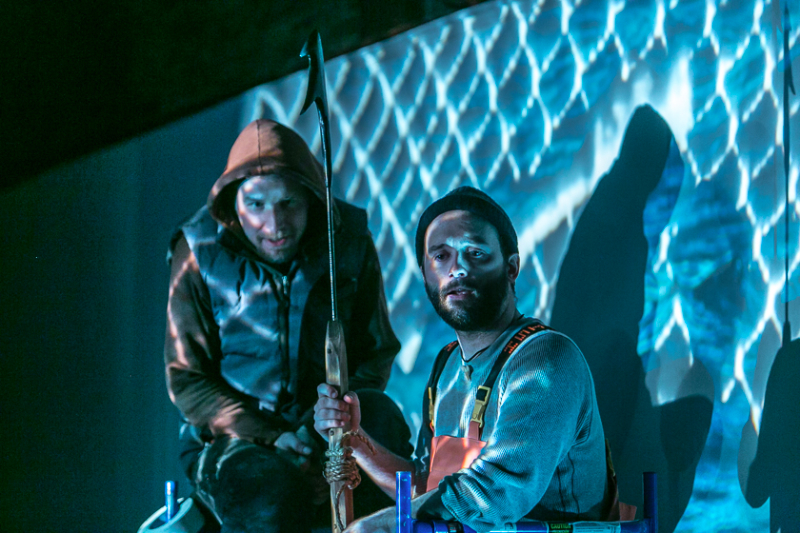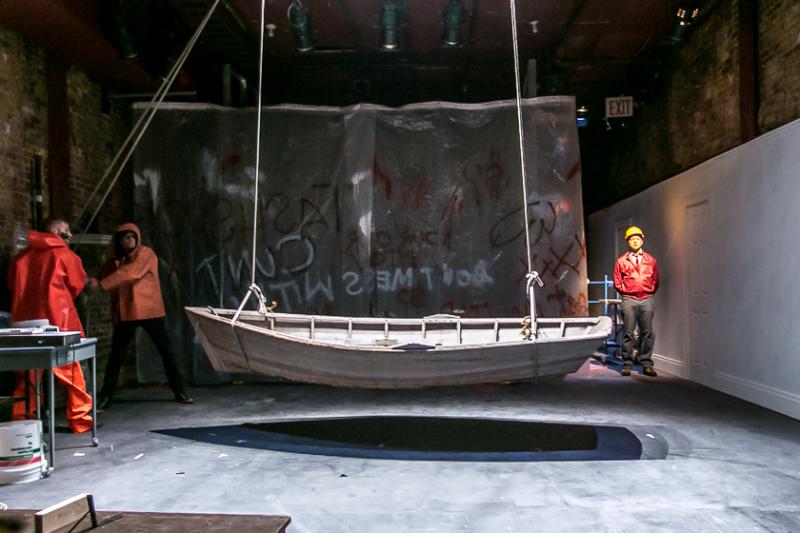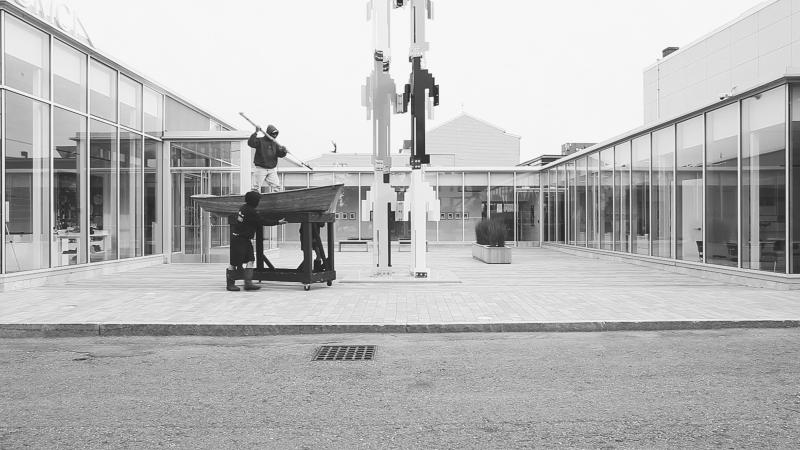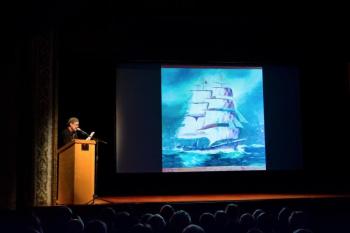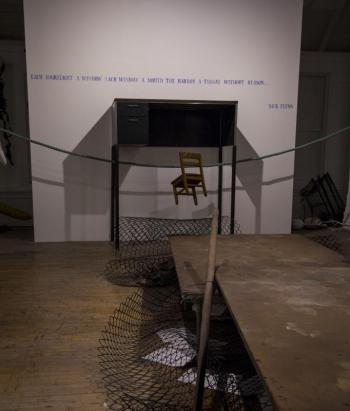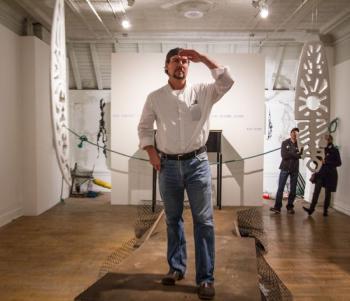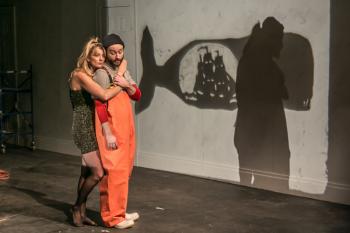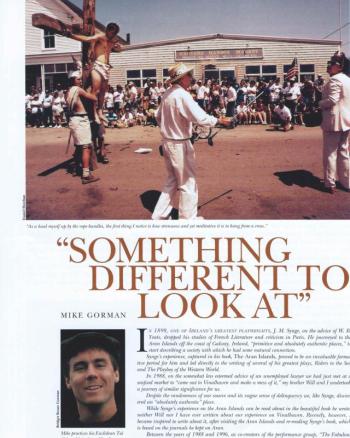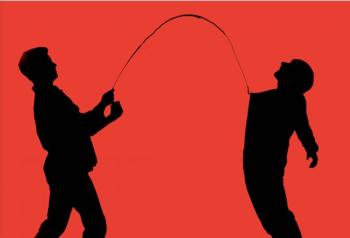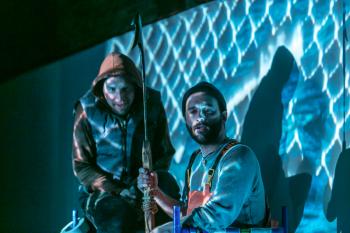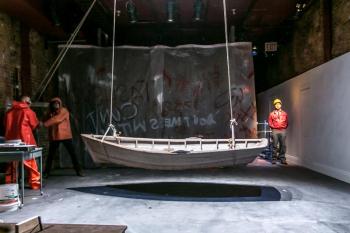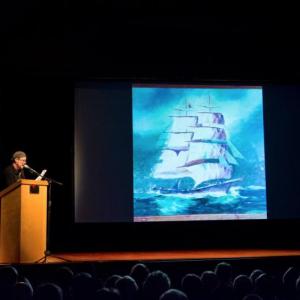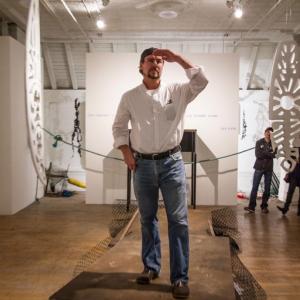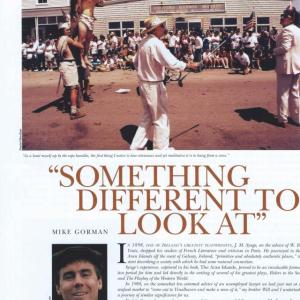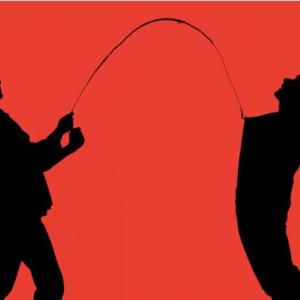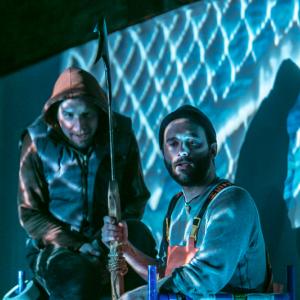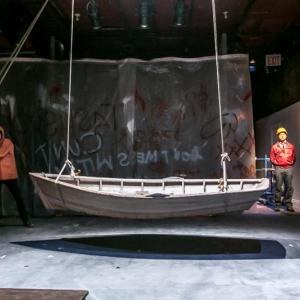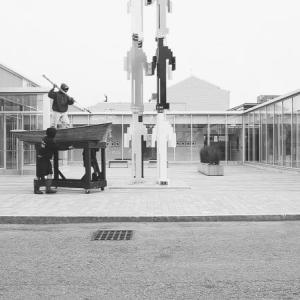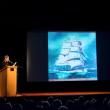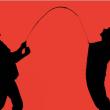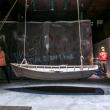Pecha Kucha: Behind The Slides
Playwright Michael Gorman explores opiate addiction, commercial fishing and Moby Dick
The deeper story behind the presentation
Thu, 02/01/2018 - 12:45pm
One of Pecha Kucha Midcoast’s most recent presenters was Michael Gorman, an installation and experimental theater artist and founder of “The Forty Hour Club.” Gorman, who lives both in Maine and New York, is currently working on a trilogy of plays called “The Honor and Glory of Whaling” that deals with the issue of opiate addiction in the commercial fishing community of New England.
Note: Gorman’s Pecha Kucha slides appear in the right column. Click on the photos to match them with the actual slide notes (in italics). Beneath the slide notes will be the deeper story.
Writing A Trilogy
I’ve always loved the spirit and energy of live rock and roll. The anticipation and excitement of things coming together, rather than the fear of things falling apart. I also love the pure power of words.
The oversized desk and tiny chair in this image represent the daunting task I faced in writing a trilogy about opiate addiction, commercial fishing and Moby Dick. Constructed of totems, large-scale shadow casting silhouettes and a shipwrecked raft as a performance platform, this imaginary harbor is a space we move through like a dream sequence; whether traveling into or out of this distant port of call, there is always a tangled snarl preventing a clear course of action. The route is hard to navigate, and can seem almost impossible to try.
Fishing For Paradise
With my fishing trilogy complete, and amidst an installation that unearthed and explored the history of the cycle of plays, I keep my eyes on the horizon and ponder the future as I prepare to synthesize all three plays into one epic production to be performed regionally and at La MaMa Theater in 2018—the next leg of the journey.
This image is from "Fishing for Paradise,” an installation that “took viewers on a dramatic journey of discovery through the playwright's world as he unearths the layers of production history of his epic trilogy of plays.”
Moby Dick
Moby Dick rears his ugly head.
Greater story: Steven, a fisherman struggling with addiction, and Michelle, his girlfriend and artist, contemplate their future as the specter of the great white whale and its allusion to opium, and heroin—it's contemporary scourge—looms on the horizon.
Vinalhaven
The roots—Vinalhaven. “The Greatest Story Ever Told.” Beyond the performance of individual plays and productions, we engaged in an eight-year ongoing dramatic experiment, both hilarious and profound, with the community.
Provocative performance is about risk-taking. "Will the audience see the beauty, humor and value of entertainment in our performance, or will they perhaps find it sacrilegious in some way?" I wonder as I perform a scene from "The Greatest Story Ever Told" (Old Testament) on Main Street on the island of Vinalhaven during the Fourth of July parade, as a member of the performance troupe "The Fabulous Giggin' Bros." In the end, it's really all about community, and our "entry" gets rousing applause as Greg Dorr (a local lawyer) and his father, Luke, engage in the ancient dance of good and evil as "Jesus Christ Superstar" and "Sympathy for the Devil" blare from their respective boom-boxes.
Ultralight
In turn, it was our La MaMa production of “UltraLight,” a play about fishing and addiction that unexpectedly hooked into an unseen audience in New York City—recovering addicts.
The lighting designer and I set up two actors behind a scrim flooded with red light to create the iconic image for my play "UltraLight,” a parable that explores the lessons to be learned from addiction about the bonds of brotherhood, wilderness, storytelling and integrity—what it means to be alive— "really and truly" alive. "That was me man!" a recovering addict, with tears in his eyes, declared after the play’s performance in Gloucester, MA, following its premier at La MaMa in NYC. "I was the fish on the end of that line!"
Invisibility
I became deeply intrigued by the powerful connection we had made and the idea of “invisibility”—that there is a whole class and culture of people among us that are, for all intents and purposes, invisible.
Two recovering addicts—one, a commercial fisherman, the other a long-distance truck driver—discuss the roots of their addiction while fishing for tuna and the time they have spent incarcerated for their disease. "Remember the first time?" Steven asks Big John. "I lost something, John, that very first time [I tried heroin] and I want it back. Every time I think about getting high, it's like I'm trying to get even." "You can't get even with a drug, Steven,” replies Big John.
Apprenticeshop
Then I found another boat—a gift from the Apprenticeshop for traditional wooden boat building in Rockland—for staging the final play in my trilogy, "If Colorado Had an Ocean ..."
During the play, this boat descended from the heavens (theater grid) with the character of Tashtego in it—the lead harpooner in Moby Dick—who is summoned to kill the drug dealer and rid the town of drugs. The actor, unseen by the audience at this point, had been in the boat for an hour and 20 minutes, and his appearance created an astonishing spectacle, tying the modern day world of commercial fishing to Moby Dick and the ancient whaling era.
The Chase
"Towards thee I roll, thou all-destroying but unconquering whale ..." (Moby Dick)
Later, we built a dolly for the boat to create a mobile platform to reach deep into the commercial fishing community and the heart of addiction with an ongoing series of staged readings in art museums (CMCA, La MaMa Galleria) and installations on the working waterfront (Portland Fish Exchange, Kindling Fund—Andy Warhol Foundation).
Visit fortyhourclub.com for a full history and recent news of Mike’s work.
Kay Stephens can be reached at news@penbaypilot.com
Event Date
Address
United States
Standard Post

